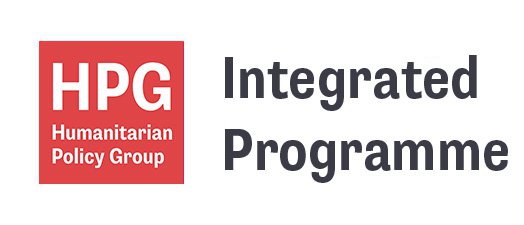Humanitarian negotiations with armed non-state actors
Over the past two decades, humanitarian actors have expanded the geographic scope of their work to more challenging and dangerous environments. As a result, negotiations with armed non-state actors (ANSAs) have become increasingly important in order to gain access to populations in need of their assistance. Yet many humanitarian actors feel that negotiating with ANSAs presents formidable challenges, including a lack respect for international humanitarian law (IHL), hostility to humanitarian principles and distrust and suspicion of humanitarian organisations.
A wide range of external factors have also come to bear on agencies’ ability, willingness and capacity to engage, both individually and collectively, with ANSAs. Chief among these has been the so-called ‘politicisation of aid.’ In contexts such as Afghanistan and Iraq, the majority of funding for humanitarian and multi-mandate agencies is provided by belligerents on one side of the conflict who increasingly view assistance as integral to achieving their military and/or political objectives, potentially undermining the neutrality and impartiality of humanitarian actors. In Somalia, Sri Lanka and Gaza, counter-terror legislation and other measures aimed at preventing aid from flowing to designated ‘terrorist’ organisations has also often forced agencies to make an impossible choice between principles on the one hand and funding and/or access to affected populations on the other.
An in-depth analysis of the role of ANSAs has been largely neglected in much of the literature on humanitarian space and many agencies on the ground fail to adequately understand ANSAs’ interests and motives. Likewise, many agencies have neglected to engage ANSAs in a strategic way or have not developed sufficient institutional capacity to support dialogue with ANSAs. This has sometimes resulted in a failure to train staff on the ground in negotiating skills, often exacerbated by the high turnover and other operational challenges many humanitarian actors face in difficult environments. As a result, humanitarian negotiators often lack adequate understanding of the ANSAs that they are seeking to engage with and are ill-prepared for the process.
This project aims to better understand how aid agencies engage with ANSAs, and how humanitarian engagement ultimately affects access to protection and assistance for vulnerable populations. It will seek to examine various issues and country case studies that illuminate this engagement in difficult political and security environments. This includes what lessons can be learned from experiences of negotiations and dialogue with ANSAs to ensure that vulnerable populations are better able to access assistance and protection. It will also explore the risks inherent to this engagement, including the moral dilemmas that often arise and the compromises that agencies make in order to gain access.
Staff
-
Sara Pantuliano
Chief Executive
